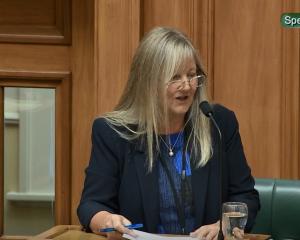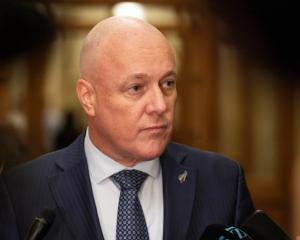Justice minister Judith Collins has been forced to correct inaccurate information after being wrong-footed by a Cabinet colleague over funding for judges.
The embarrassing correction from the minister came after she adamantly refused to supply information because it "does not exist".
But after details emerged from Attorney-General Chris Finlayson which appeared to contradict Ms Collins, her office was forced to admit it had made a mistake.
The initial answer came in an Official Information Act response from Ms Collins which sought the dates of meetings she had with Mr Finlayson to discuss judicial funding.
The Herald had sought details of meetings over the issue of judicial funding, which has been one of a number of points of tension between the government and judiciary in the past few years.
Ms Collins's office spent three months labouring over an Official Information Act response and then said no information existed because there had been no meetings.
The Herald sought out Mr Finlayson for comment, having learned of approaches to his from the judiciary. As Attorney-General, one of his roles is to act as a conduit between the judiciary and the government.
Mr Finlayson said his office and hers were in "constant contact"with Ms Collins on the subject.
"For this reason, it may be difficult to pin point any particular date or time when such matters were discussed."
As it turned out, when asked to explain the disparity, Ms Collins' staff found it was possible to pinpoint a December 11 2013 meeting with Mr Finlayson and the Chief Judge of the District Court Jan Marie Doogue which included discussions around judicial funding.
Press secretary Emma Kelly said: "This was not included in the OIA response as the detail of the meeting was not recorded in the minister's diary."
There have been growing tensions between Ms Collins and the judiciary, particularly over resourcing of judges in the courts. It is understood chief judges have raised with Mr Finlayson the lack of funding to increase public involvement in the court process through publishing decisions and formal annual reports.
The issues were also raised by chief judges during the Herald's series on the judiciary last year.
Meanwhile, Ms Collins has raised questions over whether judges are doing enough work. In November, she wrote to Finance Minister Bill English asking the Productivity Commission "review the functioning of the district courts". She said she was concerned judges were not disposing of cases any faster even though their workload had dropped.
Labour justice spokesman Andrew Little said it "beggared belief" that Ms Collins had kept no record of discussions on such an important issue.
He said it also clashed with the understanding minister's diaries were run tightly and that records were carefully kept.
"Even if there were informal discussions on a topic, they go away and tell their officials."
- By David Fisher of the New Zealand Herald












